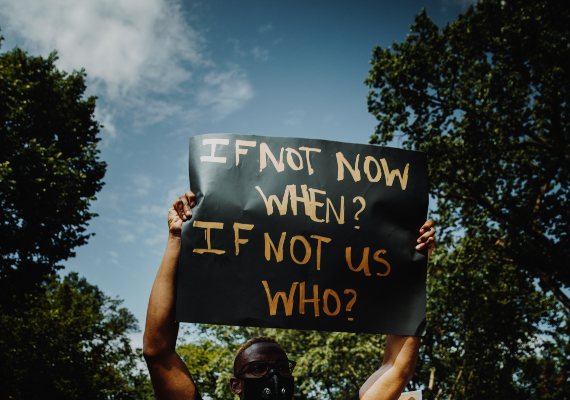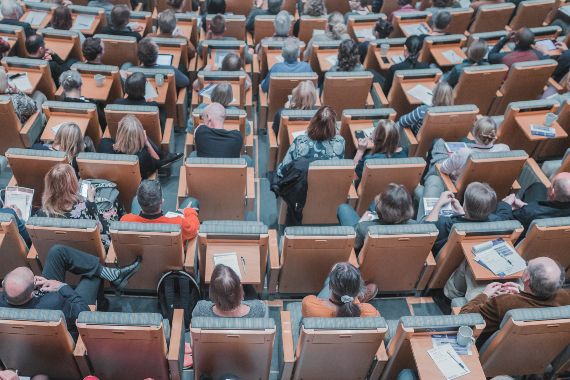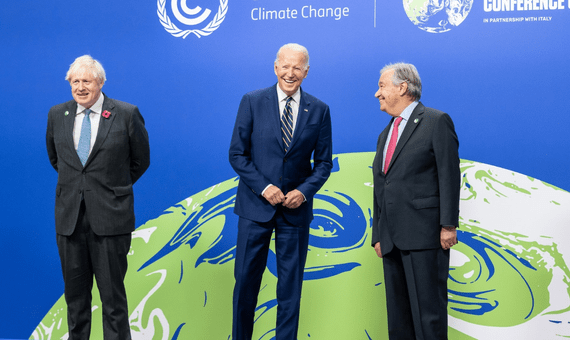Isabel Moreno, physicist, meteorologist and television host, interviews Alejandro Quecedo del Val, writer, activist and member of the SEO/Birdlife Youth Board, to discuss youth and climate change.
Why did you get started in this world of environmental awareness?
I was a bird lover and suddenly started to realize that birds were disappearing, and that there was a serious problem with them. In response to the question of why birds were disappearing, many factors started to emerge, including climate change, our agricultural model, our model of society… we are facing unprecedented loss of biodiversity.

One is aware of the entire problem, which as a whole is the eco-social crisis, and for which, climate change is definitely the tip of the iceberg, but it is also the problem that accelerates everything else.
When you reach that level of awareness, it is hard to escape it and you start to go to battle from this broader paradigm that is the eco-social crisis.
Why do you think that so many youth have joined these movements calling for a better planet?
When we talk about the environment, we really don’t realize how severe and urgent the situation is. When these people call for a healthy planet and environment, they are simply demanding their right to live.
In 2019, the World Economic Forum published a report which considers the climate crisis a greater risk for humanity than weapons of mass destruction.
Do you think that most young people feel this way or is it just a minority?
I think the majority feel this way, but when it comes to implementing a strategy, we are a minority. Even though the emotion and awareness is there, there are a lot of divergences and many different approaches to how to transform this feeling into a strategy for action or a way of life.
Do you think that adults really listen to young people, or do they just act like they are listening for the photo?
If the youth of today can take to the streets, it is thanks to adults, who produced the IPCC reports that give us the information, who have done the field work, who have written the ideas and philosophy that we fell in love with and which made us take to the streets.

However, on a social level, we are responding in a different way depending on the sector. There is an elite group that is entrenched in climate inaction, even in denial, which is simply murder. Murder of our ecosystems and of life itself. For example, we have data that shows that 100 companies have produced 71 percent of greenhouse gases since 1986. However, it is an elite group that remains inactive.
And when you go to international forums, do you have the feeling that people listen?
When we are talking about the COPs, and the different UN processes, I like to compare them with a term that I explain in my book, Gritar lo que que está callado (Shouting what is not said), which is the term “climate spectacle”. It is very much related to Guy Debord’s spectacle theory.
It seems like the world’s great theater: we have a huge stage, people who applaud, lights and an army of media ready to take pictures of key moments of the speech. The question is, what happens to that speech? Because we have protests, meetings and conferences for talking, yet at these moments, when the future of the planet, the future of its people and all living things has to be negotiated, we don’t have a seat at the table. But this doesn’t happen only to young people. It also occurs with civil society, scientists, even with country delegations.

So you can get an idea, at COP 26, the largest delegation wasn’t of scientists, the United Nations or any country. It was the delegation from fossil fuels, oil companies.
In all these years have you seen any changes?
I think that the biggest change we have had was a change in hope. At one point it seemed like there was collective hope that there would be a moment of transformation, of political ambition, but instead there were constant missed opportunities. And I think that from the moment I started until today, the change has been a very significant loss of hope.
A loss of hope on what level?
When youth broke onto the scene of climate change and ecological crisis, it seemed like there was a certain awareness, ambition and political capital was being created that didn’t exist before to undergo transformations at all levels. However, it was quickly demonstrated that it was a collective dream, built and fed by political, media and even social parties, but that when it came to social and economic transformations, which is the only thing that can solve the situation in which we find ourselves, we have seen that there has been no substantial change.
Comments on this publication